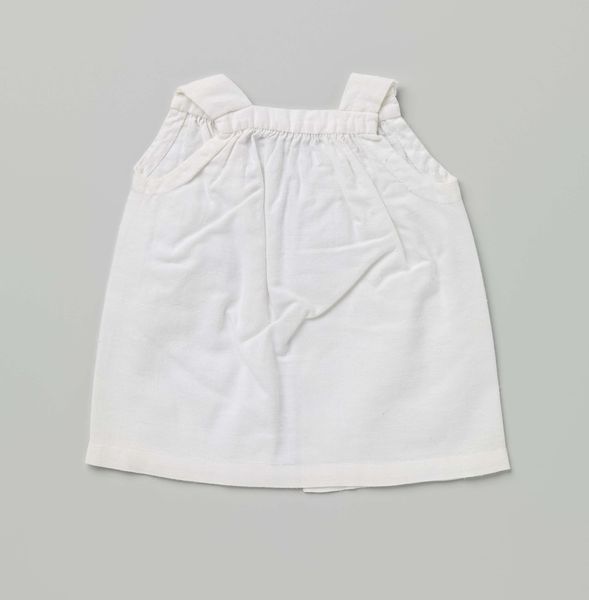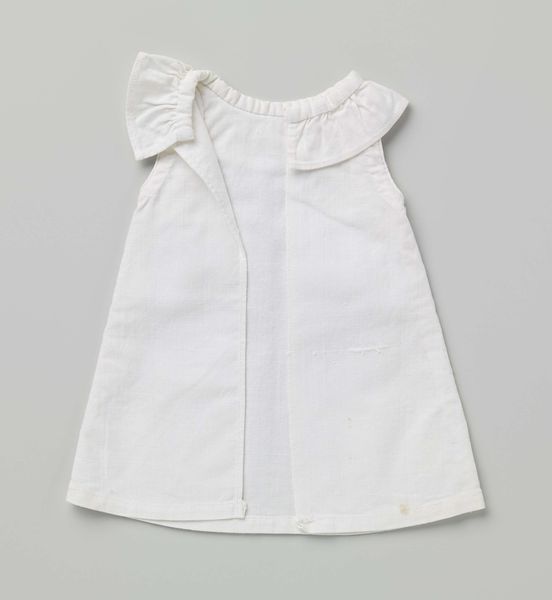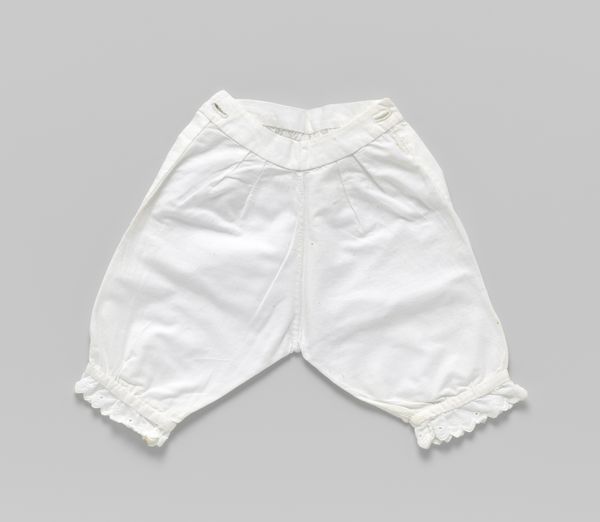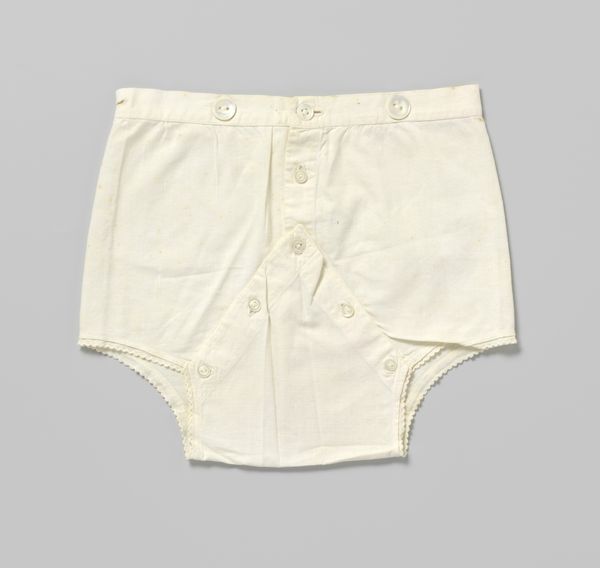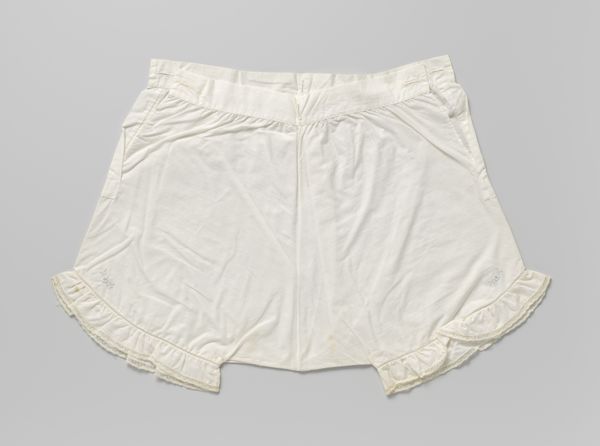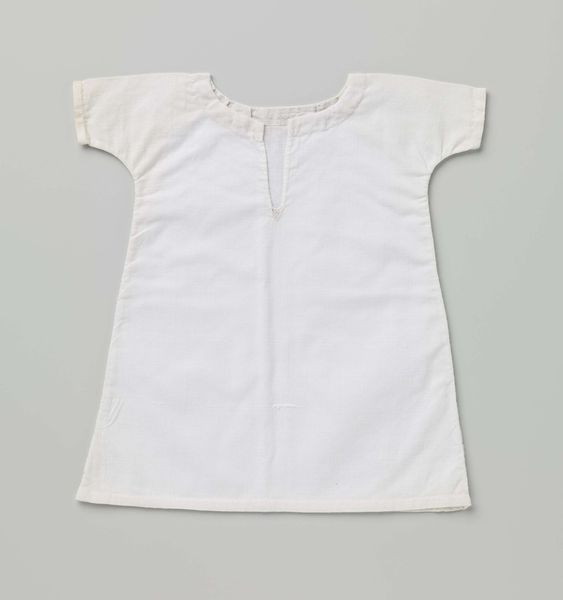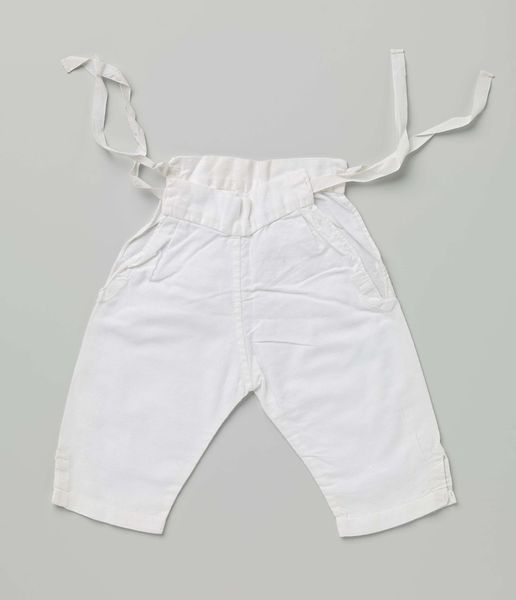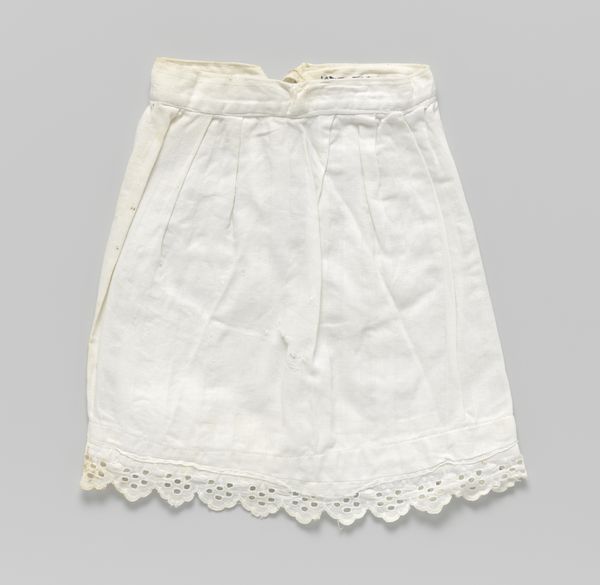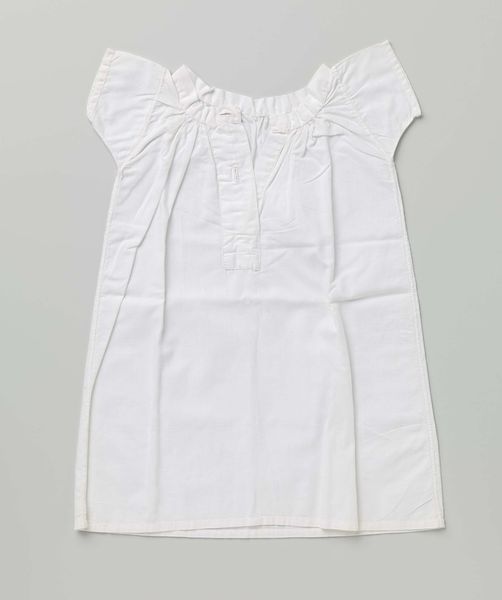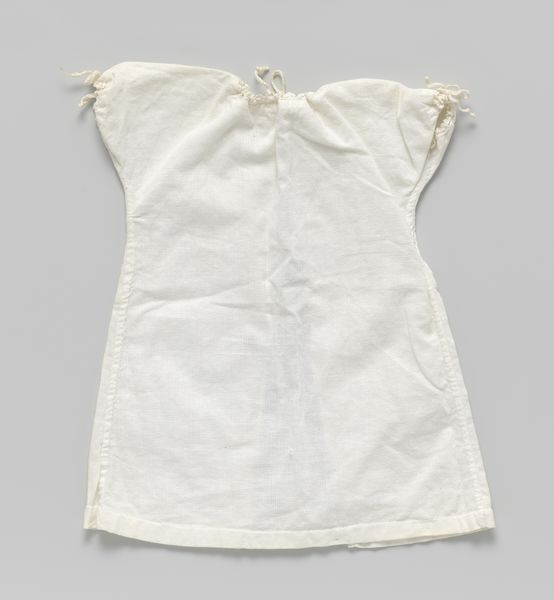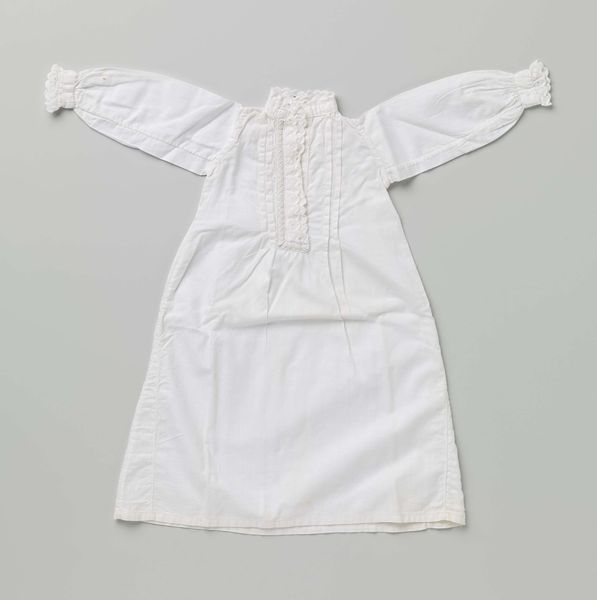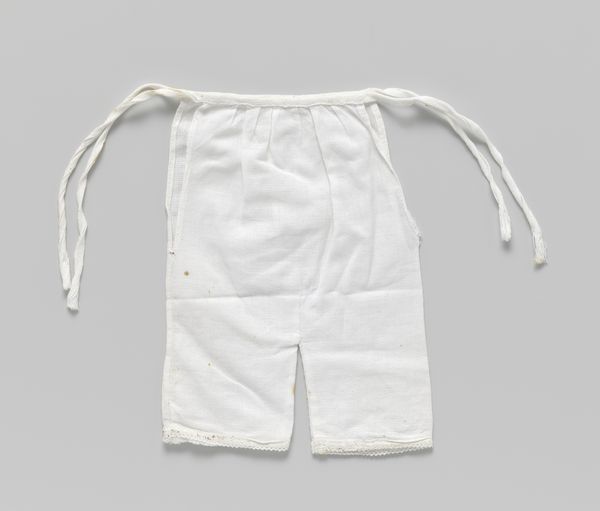
Hemd zonder mouwen, kleinmodel, vervaardigd op de normaalschool te Deventer c. 1888 - 1894
0:00
0:00
textile, photography
#
fashion design
#
underwear fashion design
#
fashion mockup
#
fashion merchandise
#
textile
#
clothing promotion photography
#
fashion and textile design
#
photography
#
clothing photography
#
folk-art
#
clothing theme
#
clothing photo
#
clothing design
Copyright: Rijks Museum: Open Domain
Editor: This is a photograph of a child's undershirt, a "Hemd zonder mouwen, kleinmodel" created around 1888-1894. It looks almost ghostly in its simplicity and stark whiteness, like a relic from a bygone era. What do you see when you look at this image? Curator: Ah, yes, the humble undershirt! It speaks volumes, doesn't it? The plainness is deceptive. It reminds me of a blank canvas, representing the potential and vulnerability of childhood. The choice to photograph such an everyday item... well, that feels radical for the time. Did the photographer intend to elevate the mundane, or simply document a teaching tool from the Deventer school? It's so...unassuming, yet quietly powerful. Editor: I hadn’t considered it as potentially subversive. The "teaching tool" aspect is interesting, especially since the name 'G. Glas' is mentioned in metadata - is this possibly related to a teacher that used this item at school? Does the lack of embellishment mean it was made to be strictly utilitarian? Curator: Perhaps, though consider how ideas about "utility" have shifted through time. Clothing, even underwear, carries cultural weight. This garment whispers about hygiene practices, societal expectations, even the evolving concepts of childhood comfort. It could also point at folk-art roots or aspirations, when considering simplicity and limited possibilities to produce highly original and recognizable artifacts. Editor: It’s strange to think that something so small and unassuming can be a window into so many different facets of life in the late 19th century. I guess even underwear has its story to tell. Curator: Exactly! Isn't it wonderful how art lets us find echoes of ourselves, and hints of human experience, even in the most unexpected corners? This piece proves, I think, that we should be wary of taking 'banal' at face value; who knows what is waiting just beneath?
Comments
No comments
Be the first to comment and join the conversation on the ultimate creative platform.
